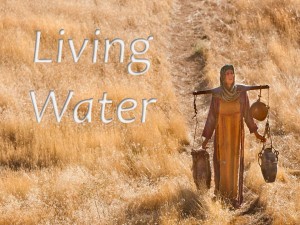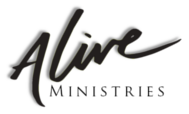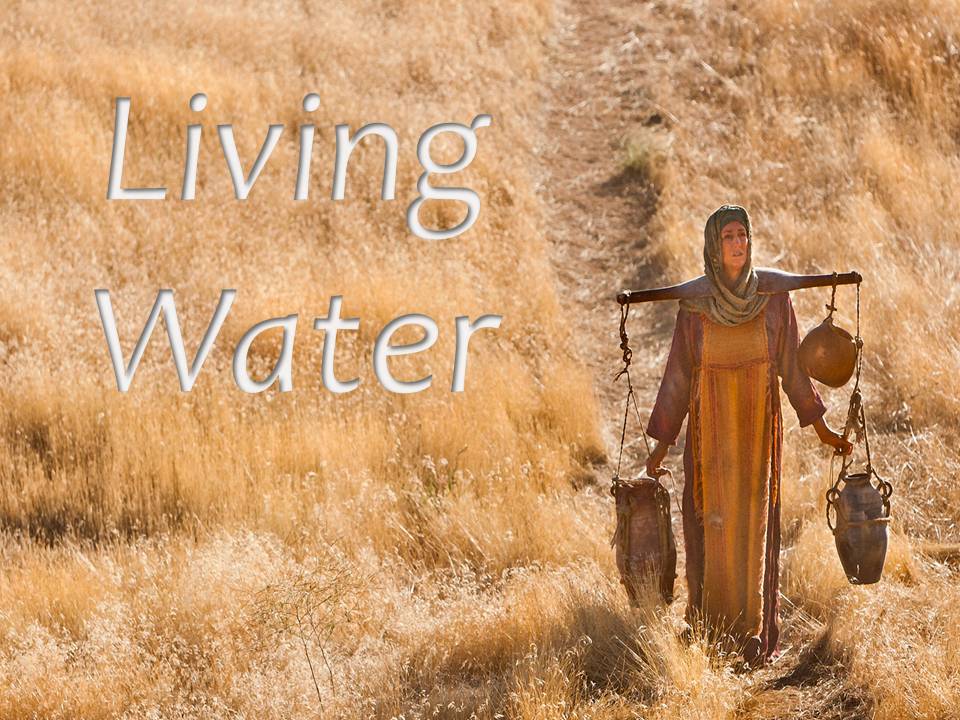 There are time in everyone's life when we feel dry, parched and worn out. Perhaps it is the routine of daily activities that seem to be going no where, or it is the lack of meaningful relationships that leave us alone, or it is the failure of the past that doesn't give us much hope for the future. Whatever the reason, trust me we've all been there and, more importantly, if we're not careful we'll be there again soon.
There are time in everyone's life when we feel dry, parched and worn out. Perhaps it is the routine of daily activities that seem to be going no where, or it is the lack of meaningful relationships that leave us alone, or it is the failure of the past that doesn't give us much hope for the future. Whatever the reason, trust me we've all been there and, more importantly, if we're not careful we'll be there again soon.
“You, God, are my God, earnestly I seek you; I thirst for you, my whole being longs for you, in a dry and parched land where there is no water.” Psalm 63:1Parched: (adj.) to be dried out, extremely thirsty The story of the woman at the well is a real personal encounter between a Samaritan and a Jew that crosses racial, sexual and cultural boundaries and speaks to the deepest needs of humanity. In the heat of the day the woman comes, day after day, to collect water from a cistern. It's part of her duty as a wife and homemaker, but what about her life as God's child. Somehow that's been forgotten or evaporated through the five husbands she's had. She's worn out and pretty much given up on having dreams. Perhaps you can identify with her struggle to find purpose and meaning in her life. What can we do when our dreams seem like a distant memory? Where can we turn when our failure out number our friends? What's the point of hope when each day looks pretty much like the last? We need help.
“I will make rivers flow on barren heights, and springs within the valleys. I will turn the desert into pools of water, and the parched ground into springs.” Isaiah 41:18There's two kinds of water: (1) Cistern Water and (2) Living Water. Cistern water is collected and held in a deep pit. We did a cistern where we want it, as deep as we want it and we can in some way say we "own" it and the water it contains. A bucket is lowered and collects the water to be hauled up and stored in jugs. Whatever falls in the cistern stays there. The buckets churn up the water until the last person gets only muddy, silty water. When the water's gone, or there's a drought, you do with out. You can't manufacture more. Living water up from deep in the ground as of a spring, gurgling cold, clean and abundantly. We didn't ask for it, it's a gift. No one can rightfully claim they own a spring, it is free to share and cannot be controlled. When we've collected all the water we need, it still flows, almost wastefully, overflowing to form streams and eventually rivers. Because it is unending, it forms an oasis in a parched land enabling things to grow in times of great heat and drought. Now... which do you suppose most people prefer in their life? That's right, the Cistern. Simply because we control it, own it, and distribute its blessing to those we choose. Cisterns give us the power. So this story, like most in the Bible, are stories of power, grace and surrender. The imagery of Living water in a desert land is so enticing and inviting that the casual reader would be salivating at the thought of fresh spring water on a hot day, but would also be faced with the prospect of overcoming their disgust at talking to a Samaritan woman. What if you can't have one without the other? Which would you choose? When you're desperate, parched and empty, Jesus' invitation will sound like music to your ears. If you're not ready to trust that much, then you're not ready to give up your cistern lifestyle. Yet... Sermon Audio: Living Water 7.21.13E Living Water 7.21.13L Sermon Notes: Sermon Notes 07.21.13 Living Water
Email Subscription:



